Life
Sign up for our newsletter
We summarize the week's scientific breakthroughs every Thursday.
-
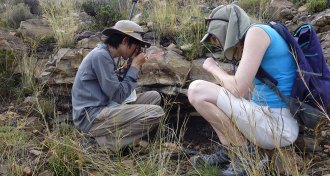 Paleontology
PaleontologyLand life spared in Permian extinction, geologists argue
New rock layer dating in South Africa’s Karoo Basin suggests that extinctions of land species didn’t coincide with the Permian extinction around 252 million years ago.
-
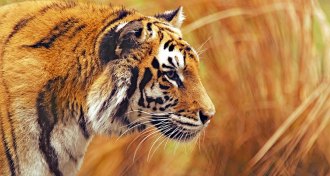 Animals
AnimalsBig cats hunt livestock when wild prey is scarce
Lions, tigers and other big cats tend to hunt livestock only after their wild prey has dropped in availability, a new study shows.
-
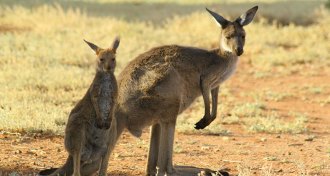 Climate
ClimateKangaroo farts may not be so eco-friendly after all
Kangaroos fart methane, but not much thanks to the metabolism of gut microbes
-
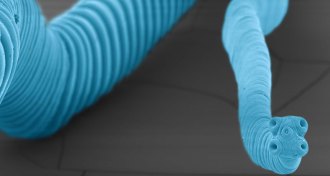 Health & Medicine
Health & MedicineParasite gives a man cancer
Tapeworms can kick parasitism up a notch to become cancer, a case in Colombia shows.
-
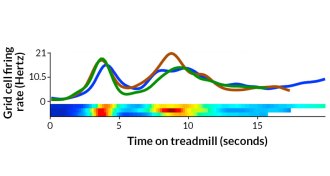 Neuroscience
NeuroscienceBrain’s GPS cells map time and distance, not just location
Brain’s GPS cells map time and distance, too.
-
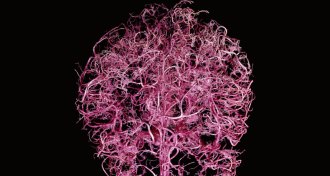 Neuroscience
NeuroscienceBlood exerts a powerful influence on the brain
Instead of just responding to the energy needs of neurons, the blood can have a direct and powerful influence on the brain.
-
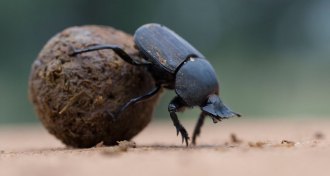 Animals
AnimalsColor of light sets dung beetles straight
Dung beetles may rely on green and ultraviolet colors in the sky to help orient themselves.
By Susan Milius -
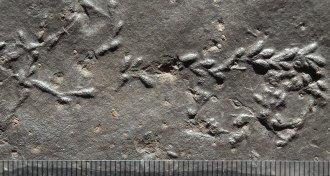 Paleontology
PaleontologyAncient larvae built predator-thwarting mazes
Mazelike tunnels built by ancient insect larvae offered protection from predators, paleontologists propose.
-
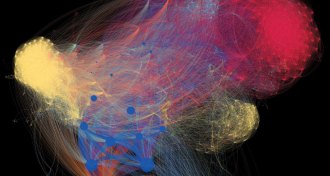 Animals
AnimalsDiagram captures microbes’ influence across animal kingdom
A network diagram of animal species shows that many microbes living in humans also make themselves at home in dogs, pigs and cattle.
By Meghan Rosen -
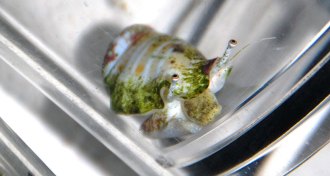 Animals
AnimalsHunchbacked conchs jump at the smell of danger
Hunchbacked conchs are among the most vigorous of snailkind’s few jumpers.
By Susan Milius -
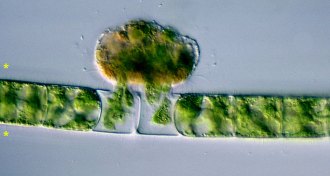 Paleontology
PaleontologyVampire microbes sucked some ancient life dry
Hole-ridden fossils suggest that vampirelike microbes were among the first predators that targeted eukaryotes.
-
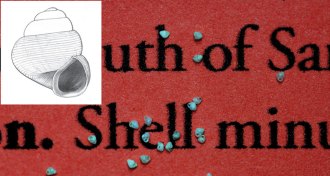 Animals
AnimalsWorld’s smallest snail record broken again
Snails may not be speedy, but itty-bitty snail shells found in Borneo are breaking a size record at a breakneck pace.
By Susan Milius